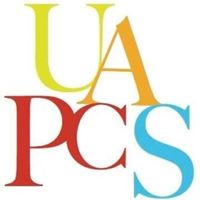Background: Effective board governance begins long before the meeting is called to order and continues well after adjournment. This comprehensive checklist outlines the essential steps for planning, conducting and documenting charter school board meetings that are in full compliance with Utah’s Open and Public Meetings Act (OPMA). From confirming quorum and posting public notice to recording votes and finalizing minutes, each item ensures transparency, accountability and operational consistency. Whether you’re a seasoned administrator or a newly appointed board member, this guide serves as a practical roadmap for fostering trust, legal integrity and meaningful engagement throughout the governance process.
Before the Meeting: Planning and Notice
- Confirm quorum.
- Draft agenda with board chair: date, time, location, action items, discussion items, committee reports, budget/financial review, administrative report, public comment.
- Obtain board chair approval of agenda.
- Post meeting notice at least 24 hours prior (excluding weekends/holidays) on:
- Utah Public Meeting Notice Website (PMN): pmn.utah.gov.
- Physical meeting location/anchor location for electronic meetings.
- School website.
- Anything noticed 24 hours prior should not be labeled as emergency
- Prepare and send board packet: previous minutes, reports, proposals, purchase orders, committee reports, training materials.
- Test audio/video technology, if virtual participation allowed.
During the Meeting: Conduct and Documentation
- Start on time; record start time.
- Record attendance: board, administrators, guests.
- Provide public comment opportunity; document in minutes.
- Stick to the agenda; no action on unlisted items.
- Record motions, who made/seconded, and votes by name; document abstentions.
- Closed session (52-4-205):
- Two-thirds vote to enter.
- State legal reason.
- Roll call in open session.
- Separate recording or detailed minutes.
- Only for litigation, personnel, real estate and security.
- Electronic meetings: confirm resolution, provide anchor location and public access.
- Maintain professional conduct and transparency.
After the Meeting: Follow-Up and Record-Keeping
- Draft minutes: date, time, location; names present/absent; discussion summaries; motions/votes; abstentions.
- Ensure audio/video recording captures full discussion; save securely.
- Post:
- Audio: within three business days.
- Draft minutes: within 30 days.
- Approved minutes: within three business days of approval with supporting documents.
- Distribute minutes to board; post on school website; label draft/approved.
- Update compliance records: training, disclosures, background checks.
- Review and assign follow-up action items.
By following this checklist with consistency and care, charter school leaders and board members can uphold the principles of transparency, legal compliance and community trust. Each step — from pre-meeting planning to post-meeting documentation — reinforces a culture of accountability and professionalism. When meetings are well-prepared, clearly communicated and thoroughly recorded, boards are empowered to make informed decisions that reflect their mission and serve their stakeholders with integrity.








